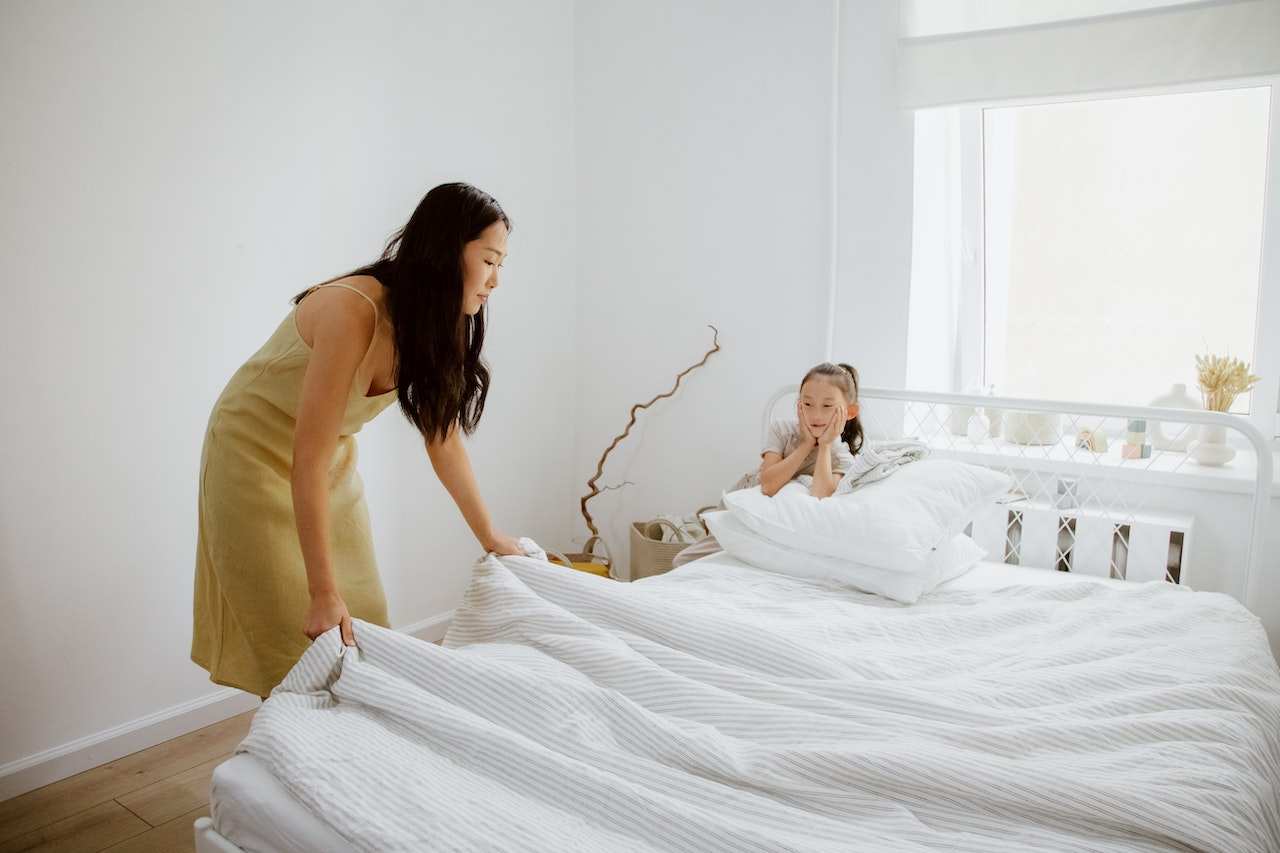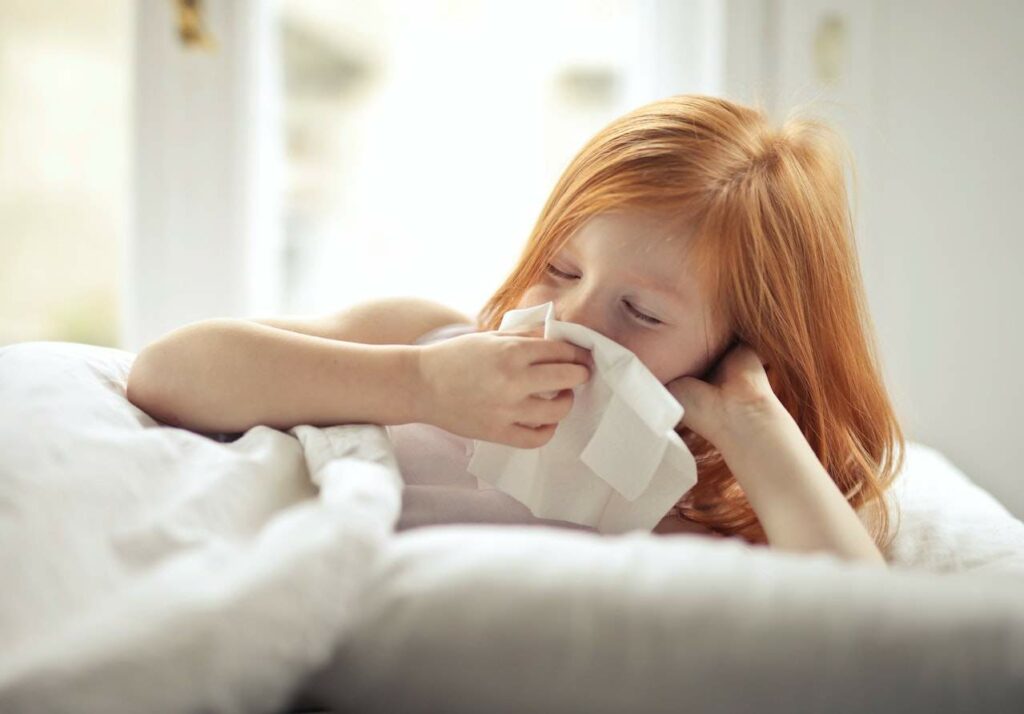Short Version
If your child suffers from allergies, washing the bedding at 60°C can help kill off the dust mites that are known to trigger symptoms.
Not what you’re looking for? check out these other guides.
Cleaning frequency table
| Bedding Type | Wash Frequency |
|---|---|
| Sheets | Weekly |
| Pillowcases | Weekly |
| Duvet Cover | Weekly |
| Pillows | 3/6 Months |
| Duvet | 3 Months |
| Mattress | 3/6 Months (Vacuum) |
| Mattress Topper | 3 Months |

Long Version
How Often Should You Change Your Kids’ Bedding?
If your children are like mine, you will know that they are a haven for dirt and grime! No matter how much you try to clean and vacuum their room, there always seems to be a new layer of dust and crumbs that appear from nowhere. I quite often find sweet or crisp wrappers lurking in their beds. So with this in mind, how often should you change your kids’ bedding?
There’s no set time period for when you should change their bedding; some parents will do it every other day, some weekly, and others every two weeks or longer.
The age of your child, the time of year, allergies, accidents, and pets lying on the bed are all factors that need to be considered. We will look at them in more detail below. In general, as a rule of thumb, if it looks or smells grubby, then give it a wash!
Summer months – More frequently, they will sweat more, and if they suffer from hay fever, it’s worth noting that pollen can get stuck to your children’s skin and hair and build up in bed linen.
Why Do I Need to Wash My Bed Sheets?
Children in particular need a lot of sleep, and a good night’s sleep can help them to concentrate during the day, perform better at school, and be in a better mood.
Creating a nice sleeping environment is important for their overall health and well-being. Having clean, fresh-smelling sheets will help your child get a good night’s sleep. A bed full of crumbs is not conducive to a good night’s sleep, and neither is the smell of sweat.
One of the main reasons you should change their bedding is to reduce the buildup of dust mites. Dust mites are tiny creatures that thrive in our homes feeding off human dead skin cells that we shed every day. They can also cause allergy symptoms in some children.
Allergies and Kids Bedding

If your child has allergies, asthma, or eczema, then it’s even more important to wash bedding regularly. Although you can’t see them, these dust mites are everywhere. Millions of them live in our homes, particularly in mattresses, bedding, upholstered furniture, carpets, and soft toys.
For people who are allergic to dust mites, exposure can cause sneezing, a runny nose, irritated eyes, and skin rashes. They can also trigger asthma attacks.
Washing your children’s bedding at 60 °C will help to remove any dust mites that may be present. It’s also important to vacuum your child’s bedroom regularly, and in particular, the mattress, as these are other places where they thrive.

There’s a fair amount of discussion about sharing a bed with a pet. Most professionals recommend that you don’t allow it. If your child suffers from allergies or asthma, it should be a firm no; even if they don’t, it is still advised not to let them on the sheets. If you do have pets, it’s probably a good idea to do the laundry and wash the bedding more often.

What about the duvet, mattress, and pillows?
The same principles apply to these items as to the bedding. They should be changed and washed regularly, although not as often.
Pillows and duvets should ideally be washed every three months or so, or at least twice a year, while mattresses should be cleaned and vacuumed every 3 months or at least every six months. If there’s a stain on the mattress, try to remove it immediately. A mattress protector can help keep the mattress stain free.
Personally, I regularly go over the mattress with a vacuum cleaner when I change the sheets. Again, having pets in the home will probably result in their needing to be cleaned more often.
The bottom line
Every week or every other day—how often you change their sheets is up to you; you can change their beds when you change your own. However, the mattress and bedding, whether it be bed sheets, a duvet, a comforter, or a mattress, should be washed and changed quickly if they’re noticeably dirty or there’s been an accident.
It’s important to stick them in the washing machine as soon as possible. A regular wash will reduce the number of dust mites as well and help to keep everything fresh and clean-smelling for a good night’s sleep. If you have pets in the house, you will need to wash your sheets more often, especially if your child suffers from allergies or asthma.
References
https://www.asthma.org.uk/advice/child/life/sleep/
https://www.aafa.org/dust-mite-allergy/






